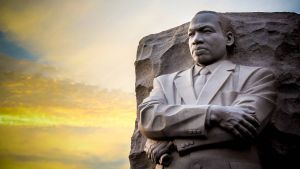For more than 50 years, Northwest Center in Seattle has been the middleman for so many great working relationships between businesses and people with disabilities. Attitudes about people with disabilities were very different in 1965. The low expectation for people with disabilities prevented families from pushing limits in education and employment.
“The answer was always ‘no,’” Gene Boes, the current president and CEO of Northwest Center, wrote in a recent op-ed for the Seattle Times. “No, your child with autism cannot attend elementary school with the rest of the kids. No, your child who has Down syndrome is not capable of learning. No, your child will never hold a job.
It took four Seattle mothers to finally stand up and say “no more!” From their defiance came the creation of “Northwest Center for the Retarded”, which initially served to teach people with disabilities how to read, write and participate in the community, as well as give them employment skills. They also teamed up with lawmakers to write and pass local and national laws supporting education for people with disabilities.
Today, under a more politically correct name, Northwest Center focuses on matching job seekers, often with disabilities, with businesses that need their skill sets in an effort to promote inclusion as widely as possible.
Northwest Center not only “talks the talk” when it comes to inclusion, they certainly “walk the walk.” Nearly 400 of 1,000 total employees at Northwest Center have a documented disability.
“Our commercial businesses compete and win not in spite of inclusion, but because of it,” Boes wrote. “And we have the data to prove that for businesses nationwide, inclusion is a strategic differentiator providing a significant competitive advantage.”
One of Northwest Center’s successful ventures is its partnership with Amazon, a Fair360, formerly DiversityInc Noteworthy Company, which began back in 2002. Amazon made the pledge to embrace inclusion long before the term became a buzz word.
“If you are an employer, you need to realize that inclusion works,” Boes wrote. “Hiring people with disabilities is not charity, but good for your business.”
The time has come for more companies to follow Amazon’s leads in terms of inclusion and hiring people with disabilities.
Related Article: Johnson & Johnson Releases Inaugural You Belong: Diversity & Inclusion Impact Review


















